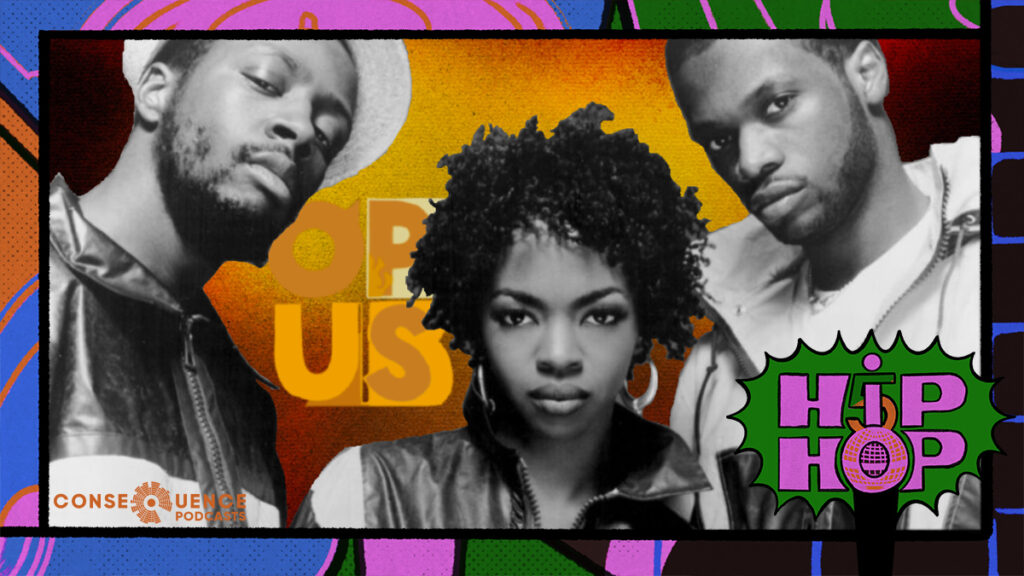Listen via: Apple Podcasts | Spotify | Google Podcasts | Amazon Podcasts | Stitcher | Radio Public | Pocket Casts | RSS
We’re opening The Opus archives as part of our Hip-Hop 50 celebration, revisiting one of the greatest rap records of all time: Fugees’ The Score.
In Episode 2 of The Opus: The Score, we’re heading to the basement — the Booga Basement, to be precise. That’s where Fugees decamped with their $150,000 Ruffhouse Records advance; instead of going into a major studio with outside producers, they went to a literal basement recording space in the East Orange, New Jersey home of Wyclef Jean’s uncle and his cousin Jerry “Wonda” Duplessis — the latter of whom joins us on this episode.
Like The Dungeon in Atlanta where OutKast cut their debut, Booga was one of the most successful and beloved underground studios in the game circa the mid-’90s. What made these locales work was the productive, family vibe (literally, in Booga’s case) and endless head bobs against which you could judge the quality of the work.
On this episode, Jerry Wonda explains how Booga Basement helped Fugees discover the sound of their legendary LP. Host Jill Hopkins also talks to him about building the studio in his family’s basement, continuing the tradition of great NJ hip-hop, and why their DIY ethos is so important when groups are trying to definie their sound.
They’re joined by Ruffhouse Records’ Chris Schwartz and Joe Nicolo, MTV’s Dometi Pongo, and Genius executive editor Insanul Ahmed. Listen to the episode above, and you can also revisit another classic album from Hill, The Miseducation of Lauryn Hill, in our retrospective feature “DMX, Lauryn Hill, and the Year Hip-Hop Changed Forever.” Be sure to also check out our exclusive Hip-Hop 50 and The Opus merch over at the Consequence Shop, or using the buy-now buttons below.
Original music by Tony Piazza.

